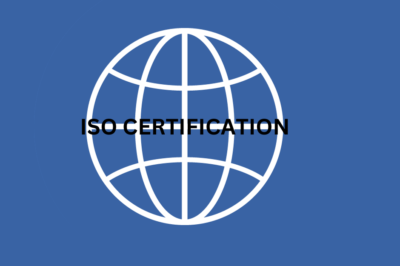ISO Certification in Saudi Arabia: Enhancing Workplace Safety in the Kingdom
First of All
Businesses in Saudi Arabia are realizing more and more that obtaining and retaining ISO certification is a smart move in today’s cutthroat economic environment. The relevance of ISO certification in Saudi Arabia is examined in this essay, with an emphasis on how it improves worker safety.
The Significance of ISO Certification in Saudi Arabia
An internationally accepted standard for effectiveness, safety, and quality across a range of industries is ISO (International Organization for Standardization) certification. Getting ISO certified is a symbol of a company’s dedication to upholding global standards, building client confidence, and earning a competitive advantage for companies in Saudi Arabia.
Safety in the Workplace with ISO Certification
Because workplace safety has a direct impact on employee well-being and overall organizational performance, Saudi Arabian enterprises are placing a high priority on it. A framework for methodically managing hazards related to occupational health and safety is provided by ISO certification, specifically ISO 45001 for Occupational Health and Safety Management Systems.
Important Advantages of ISO Certification for Occupational Safety
Risk Mitigation
Organizations can detect, evaluate, and reduce threats to occupational health and safety with the use of ISO 45001. This preventive measure lowers the risk of occupational mishaps and injury.
Legal Compliance
Obtaining ISO certification guarantees that companies abide with Saudi Arabia’s pertinent health and safety laws. This avoids legal problems and demonstrates a company’s dedication to moral business conduct.
Enhanced Morale and Productivity
A safe workplace has a positive impact on both employee morale and productivity. A safety-conscious culture is fostered by ISO certification, which increases employee engagement and motivation.
Decreased Workplace Incidents
When ISO standards are implemented, there is a notable decrease in the number of workplace accidents, illnesses, and injuries. Consequently, this reduces insurance premiums, lessens downtime, and safeguards the company’s brand.
International Recognition
The ISO certification is widely accepted, which facilitates Saudi Arabian companies’ entry into other markets. Working with accredited organizations is prioritized by many international clients and partners because it guarantees excellent standards.
How to Become Certified by ISO in Saudi Arabia
Choose Applicable Standards
Ascertain whether ISO standards—such as ISO 45001 for occupational health and safety—are pertinent to your sector and your company’s goals.
Execute Required modifications
Ensure compliance with the requirements by aligning your company processes with ISO standards and implementing the necessary modifications.
Perform Internal Audits
To find opportunities for improvement and guarantee continuous compliance with ISO standards, audit your systems and procedures on a regular basis.
Hire a Certification Body
To evaluate your company’s compliance and provide ISO certification, pick a respectable certification body that has been approved by the Saudi Arabian Standards Organization (SASO).
Continuous Improvement
To keep your ISO certification, adopt a culture of continuous improvement by keeping an eye on and improving your occupational health and safety management systems.
In Summary
In Saudi Arabia, obtaining ISO certification is not just a mark of prestige but also a calculated investment in worker safety. Businesses can improve their reputation internationally, foster safer, more productive workplaces, and improve the general well-being of their workforce by achieving and sustaining ISO certification. In the Kingdom of Saudi Arabia, putting workplace safety first through ISO certification is crucial for success in a corporate environment that is changing quickly.
